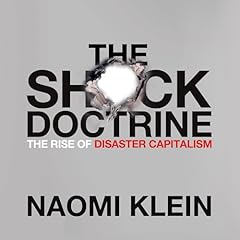
Postcapitalism
A Guide to Our Future
No se pudo agregar al carrito
Add to Cart failed.
Error al Agregar a Lista de Deseos.
Error al eliminar de la lista de deseos.
Error al añadir a tu biblioteca
Error al seguir el podcast
Error al dejar de seguir el podcast
 Exclusivo para miembros Prime: ¿Nuevo en Audible? Obtén 2 audiolibros gratis con tu prueba.
Exclusivo para miembros Prime: ¿Nuevo en Audible? Obtén 2 audiolibros gratis con tu prueba.Compra ahora por $22.22
-
Narrado por:
-
Gildart Jackson
-
De:
-
Paul Mason
Over the past two centuries or so, capitalism has undergone profound changes - economic cycles that veer from boom to bust - from which it has always emerged transformed and strengthened. Surveying this turbulent history, Paul Mason's Postcapitalism argues that we are on the brink of a change so big and so profound that this time capitalism itself, the immensely complex system within which entire societies function, will mutate into something wholly new.
At the heart of this change is information technology, a revolution that is driven by capitalism but, with its tendency to push the value of much of what we make toward zero, has the potential to destroy an economy based on markets, wages, and private ownership. Almost unnoticed in the niches and hollows of the market system, swaths of economic life are beginning to move to a different rhythm. Vast numbers of people are changing how they behave and live, in ways contrary to the current system of state-backed corporate capitalism. And as the terrain changes, new paths open.
In this bold and prophetic book, Mason shows how, from the ashes of the crisis, we have the chance to create a more socially just and sustainable economy. Although the dangers ahead are profound, he argues that there is cause for hope. This is the first time in human history in which, equipped with an understanding of what is happening around us, we can predict and shape the future.
©2016 Paul Mason (P)2016 Blackstone Audio, Inc.Los oyentes también disfrutaron:




















Great book
Se ha producido un error. Vuelve a intentarlo dentro de unos minutos.
Great Content forces Thought
Se ha producido un error. Vuelve a intentarlo dentro de unos minutos.
interesting until the end
Se ha producido un error. Vuelve a intentarlo dentro de unos minutos.
Very long, but worth it.
Se ha producido un error. Vuelve a intentarlo dentro de unos minutos.
Better than a year of The Economist
Se ha producido un error. Vuelve a intentarlo dentro de unos minutos.


